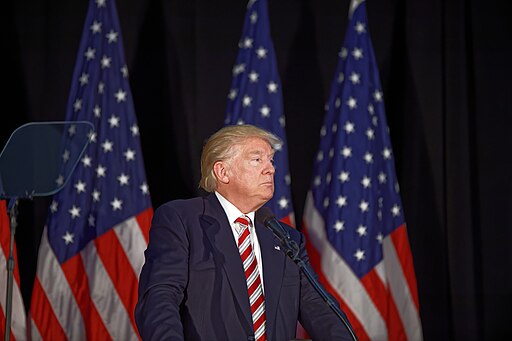U.S. President-elect Donald Trump is set to inherit a strong economy, but his aggressive policies—tariffs, immigration restrictions, and tax cuts—might disrupt growth. With output above trend, near full employment, and persistent inflation, the economy may require stability over drastic reforms.
Experts, including Moody's Chief Economist Mark Zandi, warn that Trump's proposals could harm the economy, depending on their execution. Karen Dynan from Harvard University notes that inflation remains high, federal deficits are larger, and borrowing costs have surged since his last term. Immigration-driven labor force growth, which bolstered recent economic performance, contrasts with Trump’s restrictive stance.
During Trump’s first presidency, the economy benefited from tax cuts, despite global setbacks from tariffs. However, today’s landscape is different. Inflation exceeds the Federal Reserve’s 2% target, mortgage rates approach 7%, and 30-year Treasury yields climb, signaling market concerns over fiscal discipline. Fed Governor Christopher Waller highlights inflation and deficits as pressing issues, warning of market demands for higher premiums if fiscal policies don’t change.
Despite challenges, the U.S. economy is robust. December’s 4.1% unemployment rate and 256,000 job gains show resilience. Fed Chair Jerome Powell praises the economy’s performance but stresses cautious monetary policy to stabilize inflation.
The uncertainty surrounding Trump’s economic vision contrasts with the current strength. Richmond Fed President Tom Barkin acknowledges optimism among businesses but advises flexibility to counter potential disruptions from tariffs or deportations.
Balancing reforms with economic stability will define Trump’s presidency as he navigates a high-performing yet delicate economic environment.



 China Extends Gold Buying Streak as Reserves Surge Despite Volatile Prices
China Extends Gold Buying Streak as Reserves Surge Despite Volatile Prices  Trump’s Inflation Claims Clash With Voters’ Cost-of-Living Reality
Trump’s Inflation Claims Clash With Voters’ Cost-of-Living Reality  US Pushes Ukraine-Russia Peace Talks Before Summer Amid Escalating Attacks
US Pushes Ukraine-Russia Peace Talks Before Summer Amid Escalating Attacks  Trump Allegedly Sought Airport, Penn Station Renaming in Exchange for Hudson River Tunnel Funding
Trump Allegedly Sought Airport, Penn Station Renaming in Exchange for Hudson River Tunnel Funding  Trump Lifts 25% Tariff on Indian Goods in Strategic U.S.–India Trade and Energy Deal
Trump Lifts 25% Tariff on Indian Goods in Strategic U.S.–India Trade and Energy Deal  Trump Endorses Japan’s Sanae Takaichi Ahead of Crucial Election Amid Market and China Tensions
Trump Endorses Japan’s Sanae Takaichi Ahead of Crucial Election Amid Market and China Tensions  South Korea Assures U.S. on Trade Deal Commitments Amid Tariff Concerns
South Korea Assures U.S. on Trade Deal Commitments Amid Tariff Concerns  Gold and Silver Prices Rebound After Volatile Week Triggered by Fed Nomination
Gold and Silver Prices Rebound After Volatile Week Triggered by Fed Nomination  JPMorgan Lifts Gold Price Forecast to $6,300 by End-2026 on Strong Central Bank and Investor Demand
JPMorgan Lifts Gold Price Forecast to $6,300 by End-2026 on Strong Central Bank and Investor Demand  Dollar Near Two-Week High as Stock Rout, AI Concerns and Global Events Drive Market Volatility
Dollar Near Two-Week High as Stock Rout, AI Concerns and Global Events Drive Market Volatility  Netanyahu to Meet Trump in Washington as Iran Nuclear Talks Intensify
Netanyahu to Meet Trump in Washington as Iran Nuclear Talks Intensify  Thailand Inflation Remains Negative for 10th Straight Month in January
Thailand Inflation Remains Negative for 10th Straight Month in January  Japan Election 2026: Sanae Takaichi Poised for Landslide Win Despite Record Snowfall
Japan Election 2026: Sanae Takaichi Poised for Landslide Win Despite Record Snowfall 































